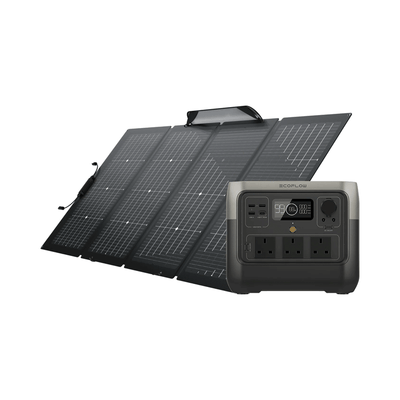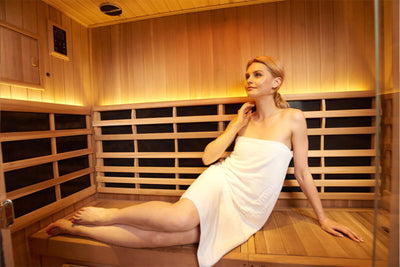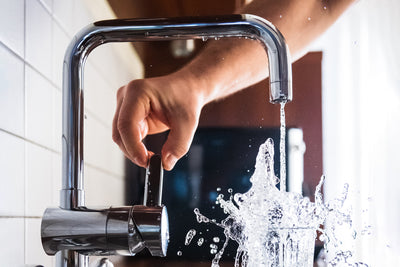
EcoFlow RIVER 2 Pro + 220W Solar Panel
Power. Never Been This Easy
Fastest charging speeds ever
-
With 768Wh capacity and 220W solar input, the solar generator can produce up to 1.8kWh daily.
-
A 800W AC output
-
Charge 0-100% in only 70 mins with AC input.
-
Up to 23% conversion with a unique two-in-one bifacial design to guarantee a fast solar charging speed: 0-100% in 4 hours (1 set).
-
LiFePO4 battery and IP68 dust and water resistance.
-
Lightweight, travel-friendly, and great for home backup.
-
Smart remote control with EcoFlow app.
-
5-year warranty for RIVER 2 Pro and 24-month warranty for 220W Bifacial Portable Solar Panel.
Charge 0-100% in 70 mins
RIVER 2 Pro beats the industry charging speed standard, fully charging in only 70 minutes. That's 5x faster than other portable power stations on the market and 27% quicker than previous generations. Fully charge RIVER 2 Pro while you pack your bags, so you'll always be ready for a last-minute trip.

Safe, for up to 10 years of use
Charge and discharge the RIVER 2 Series over 3000 times with its enhanced, long-lasting LFP battery chemistry. Utilize our 220W Bifacial Portable Solar Panel, which is comprised of solar cells that are industry standard. That's roughly 10 years of everyday use1 and 6x longer than the average in the industry. Even in high temperatures, the RIVER 2 Pro Solar Generator is significantly more secure, durable, and efficient.
Charge anywhere
With 4 different ways to top up the RIVER 2 Series, there's a recharge option no matter what. From fast AC to in-car charging when you're on the go.

Small size. Big power.
RIVER 2 Pro has an AC output of up to 800W. Need to power a hair dryer, microwave or electric kettle? Crank it up to 1600W with X-Boost mode to run up to 80% of high-wattage home appliances.

Ultra-fast home backup switchover
With a switchover speed of less than 30ms, you won't even know the power was down. Use RIVER 2 as an emergency power supply for overnight outages to keep essentials running from a CPAP machine to your fish tank.

EcoFlow App - Control at your fingertips
Use the EcoFlow app to control and monitor RIVER 2 Series, even from afar. View charging levels, customize settings, and adjust charging speeds, all from the convenience of your phone.
What's in the box
1. RIVER 2 Pro
2. AC Charging Cable
3. Car Charging Cable
4. DC5521 Connection Cable
5. Quick Start Guide
6. 220W Solar Panel
7. Solar Charging Cable
*The solar charging cable is sent together with the solar panel.

RIVER 2 Pro Specs
|
Net Weight |
Approximately 7.8kg |
|
Charge Temperature |
0°C to 45°C |
|
Capacity |
768Wh |
|
Cycle Life |
80%+ capacity after 3000 cycles |
|
AC Input Voltage |
220-240V~ 50Hz/60Hz, 940W Max |
|
Car Input |
12V/24V, 8A, 100W Max |
|
USB-A Output |
5V, 2.4A, 12W Max |
|
USB-C Input / Output |
5/9/12/15/20V 5A, 100W Max |
|
DC5521 Output (x2) |
12.6V, 3A, 36W Max |
|
Dimension * |
270 x 260 x 226mm |
|
Discharge Temperature |
-10°C to 45°C |
|
Cell Chemistry |
LFP |
| Solar Charge Input |
11-50V 13A, 220W Max |
| AC Output |
Pure Sine Wave, 800W total (surge 1600W), 230V ~ 50Hz/60Hz |
| App Control | Wi-Fi, Bluetooth |
220W Portable Solar Panel Specs
| Rated Power |
220W Front Side/155W Rear Side |
| Efficiency |
22-23% |
| Open Circuit Voltage |
21.8V (Vmp 18.4V) |
| Weight(Solar Panel) |
Approx. 9.5kg (20.9lbs) |
| Cell Type |
Monocrystalline Silicon |
| Dimensions |
82*183*2.5cm (32.3*72.0*1.0 in) |
| Short Circuit Current |
13A (Imp 12.0A) Front Side/ 8.8A (Imp8.4A) Rear Side |
Frequently Asked Questions
Does the 220W Bifacial Solar Panel generate a full 220W of power?
In most cases, it is normal for a solar panel not to deliver its full nominal power. Some of the reasons why this happens, as well as some suggestions for getting closer to the nominal power figure, are given below. 1. Light Intensity. The amount of light shining on the panel will result in fluctuations to the power output. You are more likely to achieve nominal power output figures closer to those obtained under test conditions when using the product on a clear day during the midday sun, than when using the product in the morning or later in the afternoon. Weather conditions will also affect the amount of sunlight that shines on the panel. For example, you are much less likely to achieve the figures for nominal power in hazy, cloudy or rainy conditions. 2. Surface Temperature. The temperature of the solar panel surface will also affect the amount of power generated. The lower the surface temperature of the panel, the more power will be produced. For example, solar panels generate more power when used during the winter than during the summer, and this is completely normal. Solar panels generally reach temperatures close to 60°C (140°F) during summer. This reduces nominal power by 13%, despite the higher levels of light shining on the panel. 3. Sunlight Angle. In optimal light conditions, the sun's rays should remain perpendicular to the surface of the panel for best performance. Power output is only marginally impacted by sunlight hitting the panel within 10° either side this 90° angle. 4. Panel Shading. The surface of the solar panel should not be shaded during use. Shading caused by shadows, foreign objects and glass can all greatly reduce power output. Performance Issues Caused by Malfunctioning Panels: If the panel still isn't generating power or its output remains far below expected nominal power figures after addressing the issues above, there may be an issue with the panel itself. Please contact Customer Support for assistance.
How much power can the 220W Bifacial Solar Panel generate under normal conditions?
This depends first and foremost on weather conditions. Generally speaking, on a clear day with no clouds in the sky, sunlight hitting the panel at a 90° angle usually generates 160W–180W of power in the 220W panel. (Current light conditions are normally 800W–900W/m2 (74.3W–83.6W/ft2) with a panel temperature of 50°C (122°F) under test conditions. Nominal power ratings are based on 1000W/m2 (92.9W/ft2) in AM1.5 conditions with a panel temperature of 25°C (77°F) under test conditions. Power output figures close nominal values were normally observed in the midday sun during the winter.)
What should I know about the operating temperature, storage and usage of the 220W Bifacial Solar Panel?
The operating temperature of the Bifacial Solar Panel is -20°C–85°C (-4°F–185°F). The panel should be folded into its original shape and stored in its Protective Case (Kickstand), which provides sufficient protection for the product. To extend the service life of the panel, ensure that the product is not exposed to external forces/impacts when not in use. The solar panel itself is made of glass and must not be dropped, pierced, bent, or sat on. These actions may break the glass and render the panel unusable. Any such damage will not be covered by the free warranty.
The 220W Bifacial Solar Panel has two sides. How can I tell which side is which, and how can I optimise power generation using the rear side of the panel?
The front side of the Bifacial Solar Panel has a junction box. This side of the panel generates power by being positioned perpendicular to the sun's rays. Since the rear side of the panel faces away from the sun, it does not generate electricity in the usual way. Generally speaking, the rear of the panel uses ambient light to increase the overall performance of the product by up to 5%-25%. This figure is higher if mirrors are used, or when ambient light levels are high. Using the product with the rear side of the panel facing the sun generates 80% of the power when compared to using the front side. Using the panel in this way does not have a negative effect on the product.
Can I use non-EcoFlow branded power stations with the 220W Bifacial Solar Panel?
Yes, but only certain types. The power station used must be compatible with MC4 standards in order to work properly. In addition, other brands of power station may not offer the same levels of compatibility as EcoFlow-branded power stations, may have lower nominal power ratings, and may not offer the same levels of performance.
Can I connect both 110W and 220W Bifacial solar panels together in series?
Yes, but this is not recommended. While the voltages of the two panels are identical, the current ratings are not. This means that when the panels are connected in series, the current will be limited to that of the 110W panel and the full performance potential of the 220W panel cannot be released, resulting in a 1+2<3 scenario. Please purchase panels of the same size if you intend to connect multiple panels in series.
Can I connect Bifacial Solar Panel in Parallel?
Yes, but this is not recommended. 220W solar panel have a maximum current rating of 12A. Though these panels can be connected in parallel, DELTA and RIVER series power stations only support a maximum current of 12A. Parallel connections increase power output by doubling the current, but connecting the panels in this way would result in a 1+1=1 scenario whereby the current is limited to 12A by the connected devices. We do not recommend connecting the panels in parallel, unless you use a different brand of power station with an input current of 20A or above.

EcoFlow RIVER 2 Pro + 220W Solar Panel
Add Extras
Frequently Bought Together
- Inventory on the way
Power. Never Been This Easy
Fastest charging speeds ever
-
With 768Wh capacity and 220W solar input, the solar generator can produce up to 1.8kWh daily.
-
A 800W AC output
-
Charge 0-100% in only 70 mins with AC input.
-
Up to 23% conversion with a unique two-in-one bifacial design to guarantee a fast solar charging speed: 0-100% in 4 hours (1 set).
-
LiFePO4 battery and IP68 dust and water resistance.
-
Lightweight, travel-friendly, and great for home backup.
-
Smart remote control with EcoFlow app.
-
5-year warranty for RIVER 2 Pro and 24-month warranty for 220W Bifacial Portable Solar Panel.
Charge 0-100% in 70 mins
RIVER 2 Pro beats the industry charging speed standard, fully charging in only 70 minutes. That's 5x faster than other portable power stations on the market and 27% quicker than previous generations. Fully charge RIVER 2 Pro while you pack your bags, so you'll always be ready for a last-minute trip.

Safe, for up to 10 years of use
Charge and discharge the RIVER 2 Series over 3000 times with its enhanced, long-lasting LFP battery chemistry. Utilize our 220W Bifacial Portable Solar Panel, which is comprised of solar cells that are industry standard. That's roughly 10 years of everyday use1 and 6x longer than the average in the industry. Even in high temperatures, the RIVER 2 Pro Solar Generator is significantly more secure, durable, and efficient.
Charge anywhere
With 4 different ways to top up the RIVER 2 Series, there's a recharge option no matter what. From fast AC to in-car charging when you're on the go.

Small size. Big power.
RIVER 2 Pro has an AC output of up to 800W. Need to power a hair dryer, microwave or electric kettle? Crank it up to 1600W with X-Boost mode to run up to 80% of high-wattage home appliances.

Ultra-fast home backup switchover
With a switchover speed of less than 30ms, you won't even know the power was down. Use RIVER 2 as an emergency power supply for overnight outages to keep essentials running from a CPAP machine to your fish tank.

EcoFlow App - Control at your fingertips
Use the EcoFlow app to control and monitor RIVER 2 Series, even from afar. View charging levels, customize settings, and adjust charging speeds, all from the convenience of your phone.
What's in the box
1. RIVER 2 Pro
2. AC Charging Cable
3. Car Charging Cable
4. DC5521 Connection Cable
5. Quick Start Guide
6. 220W Solar Panel
7. Solar Charging Cable
*The solar charging cable is sent together with the solar panel.

RIVER 2 Pro Specs
|
Net Weight |
Approximately 7.8kg |
|
Charge Temperature |
0°C to 45°C |
|
Capacity |
768Wh |
|
Cycle Life |
80%+ capacity after 3000 cycles |
|
AC Input Voltage |
220-240V~ 50Hz/60Hz, 940W Max |
|
Car Input |
12V/24V, 8A, 100W Max |
|
USB-A Output |
5V, 2.4A, 12W Max |
|
USB-C Input / Output |
5/9/12/15/20V 5A, 100W Max |
|
DC5521 Output (x2) |
12.6V, 3A, 36W Max |
|
Dimension * |
270 x 260 x 226mm |
|
Discharge Temperature |
-10°C to 45°C |
|
Cell Chemistry |
LFP |
| Solar Charge Input |
11-50V 13A, 220W Max |
| AC Output |
Pure Sine Wave, 800W total (surge 1600W), 230V ~ 50Hz/60Hz |
| App Control | Wi-Fi, Bluetooth |
220W Portable Solar Panel Specs
| Rated Power |
220W Front Side/155W Rear Side |
| Efficiency |
22-23% |
| Open Circuit Voltage |
21.8V (Vmp 18.4V) |
| Weight(Solar Panel) |
Approx. 9.5kg (20.9lbs) |
| Cell Type |
Monocrystalline Silicon |
| Dimensions |
82*183*2.5cm (32.3*72.0*1.0 in) |
| Short Circuit Current |
13A (Imp 12.0A) Front Side/ 8.8A (Imp8.4A) Rear Side |
Frequently Asked Questions
Does the 220W Bifacial Solar Panel generate a full 220W of power?
In most cases, it is normal for a solar panel not to deliver its full nominal power. Some of the reasons why this happens, as well as some suggestions for getting closer to the nominal power figure, are given below. 1. Light Intensity. The amount of light shining on the panel will result in fluctuations to the power output. You are more likely to achieve nominal power output figures closer to those obtained under test conditions when using the product on a clear day during the midday sun, than when using the product in the morning or later in the afternoon. Weather conditions will also affect the amount of sunlight that shines on the panel. For example, you are much less likely to achieve the figures for nominal power in hazy, cloudy or rainy conditions. 2. Surface Temperature. The temperature of the solar panel surface will also affect the amount of power generated. The lower the surface temperature of the panel, the more power will be produced. For example, solar panels generate more power when used during the winter than during the summer, and this is completely normal. Solar panels generally reach temperatures close to 60°C (140°F) during summer. This reduces nominal power by 13%, despite the higher levels of light shining on the panel. 3. Sunlight Angle. In optimal light conditions, the sun's rays should remain perpendicular to the surface of the panel for best performance. Power output is only marginally impacted by sunlight hitting the panel within 10° either side this 90° angle. 4. Panel Shading. The surface of the solar panel should not be shaded during use. Shading caused by shadows, foreign objects and glass can all greatly reduce power output. Performance Issues Caused by Malfunctioning Panels: If the panel still isn't generating power or its output remains far below expected nominal power figures after addressing the issues above, there may be an issue with the panel itself. Please contact Customer Support for assistance.
How much power can the 220W Bifacial Solar Panel generate under normal conditions?
This depends first and foremost on weather conditions. Generally speaking, on a clear day with no clouds in the sky, sunlight hitting the panel at a 90° angle usually generates 160W–180W of power in the 220W panel. (Current light conditions are normally 800W–900W/m2 (74.3W–83.6W/ft2) with a panel temperature of 50°C (122°F) under test conditions. Nominal power ratings are based on 1000W/m2 (92.9W/ft2) in AM1.5 conditions with a panel temperature of 25°C (77°F) under test conditions. Power output figures close nominal values were normally observed in the midday sun during the winter.)
What should I know about the operating temperature, storage and usage of the 220W Bifacial Solar Panel?
The operating temperature of the Bifacial Solar Panel is -20°C–85°C (-4°F–185°F). The panel should be folded into its original shape and stored in its Protective Case (Kickstand), which provides sufficient protection for the product. To extend the service life of the panel, ensure that the product is not exposed to external forces/impacts when not in use. The solar panel itself is made of glass and must not be dropped, pierced, bent, or sat on. These actions may break the glass and render the panel unusable. Any such damage will not be covered by the free warranty.
The 220W Bifacial Solar Panel has two sides. How can I tell which side is which, and how can I optimise power generation using the rear side of the panel?
The front side of the Bifacial Solar Panel has a junction box. This side of the panel generates power by being positioned perpendicular to the sun's rays. Since the rear side of the panel faces away from the sun, it does not generate electricity in the usual way. Generally speaking, the rear of the panel uses ambient light to increase the overall performance of the product by up to 5%-25%. This figure is higher if mirrors are used, or when ambient light levels are high. Using the product with the rear side of the panel facing the sun generates 80% of the power when compared to using the front side. Using the panel in this way does not have a negative effect on the product.
Can I use non-EcoFlow branded power stations with the 220W Bifacial Solar Panel?
Yes, but only certain types. The power station used must be compatible with MC4 standards in order to work properly. In addition, other brands of power station may not offer the same levels of compatibility as EcoFlow-branded power stations, may have lower nominal power ratings, and may not offer the same levels of performance.
Can I connect both 110W and 220W Bifacial solar panels together in series?
Yes, but this is not recommended. While the voltages of the two panels are identical, the current ratings are not. This means that when the panels are connected in series, the current will be limited to that of the 110W panel and the full performance potential of the 220W panel cannot be released, resulting in a 1+2<3 scenario. Please purchase panels of the same size if you intend to connect multiple panels in series.
Can I connect Bifacial Solar Panel in Parallel?
Yes, but this is not recommended. 220W solar panel have a maximum current rating of 12A. Though these panels can be connected in parallel, DELTA and RIVER series power stations only support a maximum current of 12A. Parallel connections increase power output by doubling the current, but connecting the panels in this way would result in a 1+1=1 scenario whereby the current is limited to 12A by the connected devices. We do not recommend connecting the panels in parallel, unless you use a different brand of power station with an input current of 20A or above.































